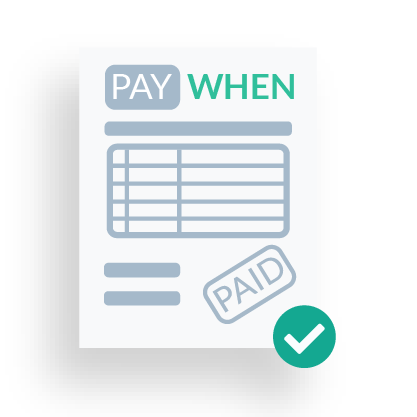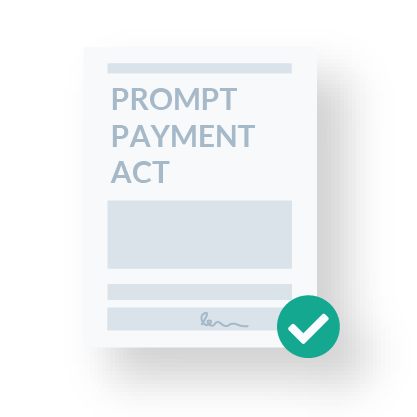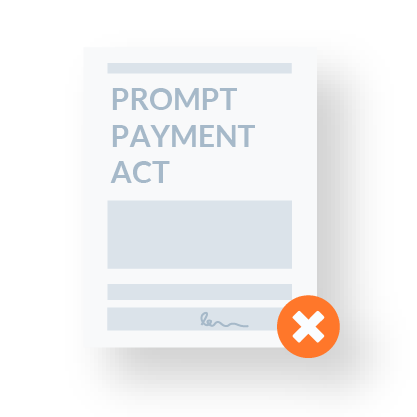Florida Construction Contracts Overview
- Private Jobs
- Public Jobs
- Top Links

Lien Rights Can't Be Waived by Contract
Florida statutes specifically prohibit the ability to waive lien rights by contract.
Pay-If-Paid Enforceable
Yes, pay-if-paid clauses in Florida are enforceable as long as they clearly and unambiguously set a condition precedent to the general contractor’s obligation to pay.

Pay-When-Paid Enforceable
Yes, pay-when-paid clauses are enforceable in Florida, but they are treated as setting a reasonable time for when payment is to be made. The underlying obligation to pay still remains, regardless of whether the property owner has paid or not.

Payment Timing May Be Modified By Contract
Yes, the Florida prompt payment provisions on private projects act as the default, the terms of the contract will govern the timing of payments.

Retainage Mostly Unregulated
Florida law doesn’t regulate the amount of retainage that can be withheld on a private project. Therefore, the terms of the contract will apply.
Pay-If-Paid Enforceable
Yes, pay-if-paid clauses in Florida are enforceable as long as they clearly and unambiguously set a condition precedent to the general contractor’s obligation to pay.

Pay-When-Paid Enforceable
Yes, pay-when-paid clauses are enforceable in Florida, but they are treated as setting a reasonable time for when payment is to be made. The underlying obligation to pay still remains, regardless of whether the public entity has paid or not.

Payment Timing Can't Be Modified By Contract
No, the prompt payment requirements for both state and local government construction projects must be made according to the prompt pay schedule.

Retainage Can Be Modified By Contract
Retainage on public projects is capped at 5%, but the contract can provide for a lower percentage, incremental decrease, or early release of retention funds.
A construction contract outlines each party’s obligations, rights, and remedies on a project. But although the language in specific contract clauses is typically negotiable, Florida has certain rules that govern what the agreement must include — and what is prohibited.
Keep in mind that, while Florida’s rules for construction contract terms are written into state law, the courts determine how strictly those laws should be interpreted — and those interpretations can change.
On this page, you’ll find resources, legal information, and answers to frequently asked questions about Florida’s construction contract and payment terms requirements.
Florida construction contract provisions
While Florida generally allows construction parties to set the terms of their agreement, there are some laws that regulate specific types of contract provisions. Any contract clause that contradicts the law is invalid and unenforceable.
“No lien” clauses
Under Florida’s lien laws, any clause purporting to waive lien or payment bond rights by contract is strictly prohibited and unenforceable. However, the recent Assignment of Benefit legislation related to emergency restoration work may operate to waive such rights.
Contingent payment clauses
There are two types of contingent payment clauses: pay-if-paid and pay-when-paid. Both of which are enforceable in Florida construction contracts, but are strictly construed, and must be clear and unambiguous in order to be enforceable. Any ambiguity concerning a pay-if-paid clause will be deemed a pay-when-paid clause, which is treated as setting a reasonable time for payment.
Payment timing clauses
Florida’s prompt payment laws set specific deadlines for payments on both private and public construction projects. The payment timing on private projects acts as the default. The payment schedule provided in the contract will apply, but if the contract is silent, then the prompt pay statutes will apply.
Conversely, all payments on both state and local government construction projects must be made according to the schedule set forth under the applicable prompt payment laws.
Retainage clauses
Florida regulates retainage differently on private and public projects. On private projects, there are no statutory limits to the amount of retainage that can be withheld, so this will be determined by the terms of the contract between the parties.
As for public projects, no more than 5% of retainage may be withheld. This applies to both state and local government projects. However, the contracting public entity may provide for less than 5% to be withheld. And can also provide for the incremental reduction in retainage, as well as the early release through the contract.
Florida construction contract requirements
Florida also has laws that establish contract requirements for specific types of projects — particularly those that involve a homeowner.
Generally, all construction contracts in Florida must contain are required to disclose the contractor or subcontractor’s registration number issued by the Florida DPBR; if required. Furthermore, all construction contracts should also include a construction defect notice and opportunity to cure provisions.
Florida home improvement contracts
In addition to the requirements stated above, all Florida direct contracts for the improvement of residential property valued at over $2,500 must also include some additional provisions. Specifically a mechanics lien notice informing the owner of lien rights in Florida, as well as a notice informing the owner of the Florida Homeowner Construction Recovery Fund.

